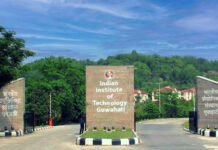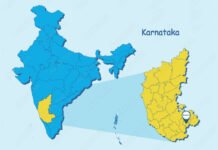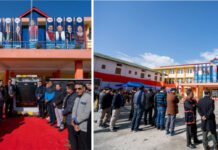A major research initiative focusing on the rich cultural and traditional knowledge systems of tribal communities in Northeast India has been launched with financial backing from the Indian Council of Social Science Research (ICSSR). The interdisciplinary project, led by Banaras Hindu University (BHU) in collaboration with IIT-BHU and Pragjyotishpur University (Guwahati), has been awarded a research grant of ₹1.4 crore to conduct a four-year study on indigenous life and knowledge practices in the region.
The grant was officially sanctioned on Friday, July 19, under ICSSR’s prestigious flagship research programme, which supports long-term projects addressing critical gaps in social science research in India.
Holistic Documentation of Tribal Systems
The project aims to comprehensively document and analyse tribal medicinal systems, folk traditions, belief frameworks, ecological knowledge, and socio-political structures found among various indigenous groups across the Northeastern states, including Arunachal Pradesh, Assam, Nagaland, Manipur, Meghalaya, Mizoram, Tripura, and Sikkim.
The study will involve field research across dozens of tribal settlements, incorporating both qualitative and ethnographic methods. It intends to produce detailed scholarly documentation while also archiving oral histories, ritual practices, and plant-based healing methods, which are often underrepresented in mainstream research.
An Interdisciplinary Effort
Professor Sharad Dhar Sharma, from BHU’s Department of Sociology, has been appointed as the principal investigator of the project. The team includes academics and scientists from sociology, botany, pharmacology, anthropology, linguistics, and archaeology, making it one of the most interdisciplinary research collaborations in recent years focusing on Northeast India.
Speaking at the project launch event, Prof. Sharma noted that the team is committed to conducting research that both respects and uplifts indigenous voices, saying, “We aim to preserve not just data but the soul of tribal life — their identity, their wisdom, and their worldview.”
The institutions also plan to work closely with local universities, tribal councils, and community elders to ensure that the research process is participatory and ethical.
Focus on Medicinal Knowledge and Sustainability
One of the standout aspects of the study will be the collection and scientific validation of traditional medicinal practices, especially those involving herbal remedies passed down through generations. These will be studied through both botanical surveys and pharmacological analysis, opening up possibilities for integrating indigenous healing systems into broader healthcare dialogues.
This component is particularly relevant as global interest rises in traditional medicine and alternative therapies, especially those with ecological sustainability.
Preserving Oral Traditions and Cultural Identity
The research also emphasizes the urgent need to preserve rapidly disappearing oral traditions and intangible cultural heritage, as many tribal languages and practices are endangered due to modernization, migration, and generational shifts.
The project intends to create multilingual digital archives featuring audio-visual recordings of songs, stories, rituals, and local folklore in native dialects. These digital records will serve not only as academic resources but as educational material for younger generations in tribal communities.
Policy-Level Impact Expected
With the growing focus on inclusion and diversity in policy and development, the findings of the study are expected to inform both academic discourse and government interventions. Scholars involved in the project aim to submit regular policy briefs to the Ministry of Tribal Affairs and state governments based on field insights.
The ICSSR’s support is being viewed as a recognition of the need to diversify research priorities, especially when it comes to the unique socio-cultural fabric of Northeast India, which has long remained under-studied in national-level academic circles.
Looking Ahead
The project will commence its first phase of fieldwork in September 2025, starting with tribal clusters in Assam and Meghalaya. Initial research stations will be set up in consultation with local authorities and tribal leaders to ensure smooth community engagement.
This initiative marks a significant step toward preserving the indigenous epistemologies of Northeast India, while simultaneously creating a bridge between traditional wisdom and contemporary academic and policy frameworks.

























